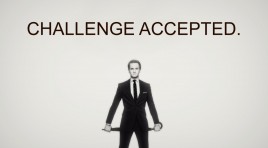I was reminded this week about the importance of tough interviews and their importance!
My friend has been interviewing at a number of good companies for high-level jobs. He’s going to be a great hire for someone, he’s a top notch talent. Great resume, experience, education and personality. He’s a five-tool player, A level talent!
He was debriefing me on some of his interviews and one thing struck me as soon as he said it. He was talking about one interview in particular and why he was interested in the company. Basically, he was interested in the company because they gave him the most challenging interview!
It was his determination that if a company was going to be that challenging in an interview, it was a place he would like to work. It was the toughest interview he has been on, and as a top talent, it seemed they were doing more to ensure they were only hiring top talent, and that made him feel like it was the right place for him!
A few things about this interview:
1. It was a long interview.
2. They didn’t force him to interview with 15 people over 8 stages.
3. They asked tough, challenging questions, they only someone who really knew their stuff, and worked at that level, would be able to answer!
The problem with saying tough interviews are better is too many HR Pros believe ‘more’ interviewing, is tough interviewing. More doesn’t equal tough, it equals more. There is a huge difference!
Tough, difficult interviews are ones where the questions asked would challenge the knowledge and skill of the person asked. Many times we end up not asking anything challenging in interviews because are spending all of our time just ‘talking’ the candidate into the job. In this instance we end up hiring the person who had the best interaction with us, maybe not the best candidate.
Top talent likes to be challenged. It’s the reason they’re top talent! If you don’t challenge them, most will not accept your offer, because they won’t view your organization as a great fit.
So, how do you challenge top talent and recruit top talent at the same time?
It’s your recruiters job to recruit and close. It’s the hiring managers job to challenge the heck out of the talent you put in front of them, then tell you which is the best. Part of the recruiters job is to ‘warn’ the candidates, that they will be challenged in this interview like none they ever have been a part of. This alone will help weed out those who aren’t up for the challenge!
Top talent wants you to want them, but they also want to know they’re going to a great organization that will challenge them and make them better!

I absolutely agree that in summary, organizations worst problems with some staff commences at the hiring stage.
We forget the mission and vision of the company when we are hiring and promptly hire individuals who could only fit in the ‘proverbial square pegs’ but we immediately put them in ’round holes!’ Then, a few months or years down the road, we have staff who are not engaged and we bring in top consultants to whip up some motivational pep into our team! Really, the question is, what did we miss at the hiring stage? Sometimes a look back at the resumes provide the missing link.
I believe we can all benefit from James Caan, CBE, British-Pakistani entrepreneur interview style.
Absolutely agree! All too often people are conducting interviews with a lackadaisical approach because they needed the candidate to join the company yesterday and they simply want to confirm the candidate is who their resume or application say they are! The more challenging the interview the more the candidate should be able to respond with actual skill or proof of abilities. Tim, your posts always makes for a great read! Have a Merry Christmas and Happy New Year too!